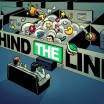The Big Book of Controversies – Chapter IV: EA Edition

After surviving the aftermath of the mid-80’s “Crash” in the video game industry, William M. ‘Trip’ Hawkins III re-branded his “Amazin’ Software” PC-centric gaming company into Electronic Arts. This was, according to fellow employee Steve Hayes, in honor of the true celebrities in the company. “We’re not the artists,” Hayes stated. “They [the programmers] are.” Early on, EA lavished both praise profit on their developers, going so far as to design their game boxes like imitation “Rock Star” albums, and began to woo many big-time game designers away from prominent positions, going so far as to even having Steve Wozniak sit on EA’s board of directors.
But by the mid-to-late 90’s, E.A.’s corporate shadow had already gained the company a rather nefarious reputation. One that painted the developer/publisher as an-all consuming giant, seizing up smaller developers and factory-annualizing releases of beloved gaming franchises that were, according to some, less than spectacular. Developers such as Origin (Ultima series), Bullfrog (Populous), and Maxis (SimCity), were just a few names added to EA’s growing arm of development. But the greatest push towards expansion occurred from 2000 to 2007. EA, now being helmed by Larry Probst and Chief Operating Officer John Riccitiello, began to aggressively purchase smaller development companies during this time. These included companies such as Dreamworks Interactive, pogo.com, Mythic Entertainment, and Digital Illusions CE (DICE).
EA also began to make several very large licensing deals with several sports franchises, notably the NFL that would give EA a five-year exclusive on all licensed NFL football video games from 2005 to 2010. On April 11, 2005, EA announced a similar, six-year licensing deal with the Collegiate Licensing Company for exclusive rights to all College Football content.
And this is where the waters get murky for EA. By 2006, many gaming critics were beginning to notice a sharp, downward trend in quality from E.A.’s core franchises; many titles, according to user reviews at such sites as Metacritic for example, were averaging out at the low-to-mid 70’s. Pacific Crest Securities analyst Evan Wilson even went so far as to say that, “Poor reviews and quality are beginning to tarnish the EA brand. According to our ongoing survey of GameRankings.com aggregated review data, Electronic Arts’ overall game quality continues to fall – Although market share has not declined dramatically to date, in years such as 2007, which promises to have tremendous competition, it seems likely if quality does not improve.”
Public perception of the EA brand began to take on negative connotations, as several past and present marketing SNAFU’s on the company’s part did not fetter positive responses by either the gaming media or the gaming consumer.

Spousal Abuse – The “EA Spouse” Blog
2004
In 2004, rumors began to circulate that Electronic Arts was incorporating hostile and stressful working conditions; rumors that suggested that the company had employed mandatory 80-to-100 hour work weeks, a common practice in the industry during a developer’s “crunch time” period shortly before game completion. The problem was that the crunch time was becoming a commonplace occurrence at the company, rather than the occasional one. It wasn’t until the release of the “EA Spouse Blog” that the rumors were proven to be true.
The post, made on November 11, 2004 to LiveJournal, sharply criticized the current labor practices of Electronic Arts:
My significant other works for Electronic Arts, and I’m what you might call a disgruntled spouse.
EA’s bright and shiny new corporate trademark is “Challenge Everything.” Where this applies is not exactly clear. Churning out one licensed football game after another doesn’t sound like challenging much of anything to me; it sounds like a money farm. To any EA executive that happens to read this, I have a good challenge for you: how about safe and sane labor practices for the people on whose backs you walk for your millions?
I am retaining some anonymity here because I have no illusions about what the consequences would be for my family if I was explicit. However, I also feel no impetus to shy away from sharing our story, because I know that it is too common to stick out among those of the thousands of engineers, artists, and designers that EA employs.
Our adventures with Electronic Arts began less than a year ago. The small game studio that my partner worked for collapsed as a result of foul play on the part of a big publisher — another common story. Electronic Arts offered a job, the salary was right and the benefits were good, so my SO took it. I remember that they asked him in one of the interviews: “how do you feel about working long hours?” It’s just a part of the game industry — few studios can avoid a crunch as deadlines loom, so we thought nothing of it. When asked for specifics about what “working long hours” meant, the interviewers coughed and glossed on to the next question; now we know why.
Within weeks production had accelerated into a ‘mild’ crunch: eight hours six days a week. Not bad. Months remained until any real crunch would start, and the team was told that this “pre-crunch” was to prevent a big crunch toward the end; at this point any other need for a crunch seemed unlikely, as the project was dead on schedule. I don’t know how many of the developers bought EA’s explanation for the extended hours; we were new and naive so we did. The producers even set a deadline; they gave a specific date for the end of the crunch, which was still months away from the title’s shipping date, so it seemed safe. That date came and went. And went, and went. When the next news came it was not about a reprieve; it was another acceleration: twelve hours six days a week, 9am to 10pm.
Weeks passed. Again the producers had given a termination date on this crunch that again they failed. Throughout this period the project remained on schedule. The long hours started to take its toll on the team; people grew irritable and some started to get ill. People dropped out in droves for a couple of days at a time, but then the team seemed to reach equilibrium again and they plowed ahead. The managers stopped even talking about a day when the hours would go back to normal.
Now, it seems, is the “real” crunch, the one that the producers of this title so wisely prepared their team for by running them into the ground ahead of time. The current mandatory hours are 9am to 10pm — seven days a week — with the occasional Saturday evening off for good behavior (at 6:30pm). This averages out to an eighty-five hour work week. Complaints that these once more extended hours combined with the team’s existing fatigue would result in a greater number of mistakes made and an even greater amount of wasted energy were ignored.
The stress is taking its toll. After a certain number of hours spent working the eyes start to lose focus; after a certain number of weeks with only one day off fatigue starts to accrue and accumulate exponentially. There is a reason why there are two days in a weekend — bad things happen to one’s physical, emotional, and mental health if these days are cut short. The team is rapidly beginning to introduce as many flaws as they are removing.
And the kicker: for the honor of this treatment EA salaried employees receive a) no overtime; b) no compensation time! (‘comp’ time is the equalization of time off for overtime — any hours spent during a crunch accrue into days off after the product has shipped); c) no additional sick or vacation leave. The time just goes away. Additionally, EA recently announced that, although in the past they have offered essentially a type of comp time in the form of a few weeks off at the end of a project, they no longer wish to do this, and employees shouldn’t expect it. Further, since the production of various games is scattered, there was a concern on the part of the employees that developers would leave one crunch only to join another.
EA’s response was that they would attempt to minimize this, but would make no guarantees. This is unthinkable; they are pushing the team to individual physical health limits, and literally giving them nothing for it. Comp time is a staple in this industry, but EA as a corporation wishes to “minimize” this reprieve. One would think that the proper way to minimize comp time is to avoid crunch, but this brutal crunch has been on for months, and nary a whisper about any compensation leave, nor indeed of any end of this treatment.
This crunch also differs from crunch time in a smaller studio in that it was not an emergency effort to save a project from failure. Every step of the way, the project remained on schedule. Crunching neither accelerated this nor slowed it down; its effect on the actual product was not measurable. The extended hours were deliberate and planned; the management knew what they were doing as they did it. The love of my life comes home late at night complaining of a headache that will not go away and a chronically upset stomach, and my happy supportive smile is running out.
No one works in the game industry unless they love what they do. No one on that team is interested in producing an inferior product. My heart bleeds for this team precisely BECAUSE they are brilliant, talented individuals out to create something great. They are and were more than willing to work hard for the success of the title. But that good will has only been met with abuse. Amazingly, Electronic Arts was listed #91 on Fortune magazine’s “100 Best Companies to Work For” in 2003.
The blog went on to say that, despite trying to bring these problems to EA’s Human Resource Management Team, their official policy was, “‘If they don’t like it, they can work someplace else.’ Put up or shut up and leave: this is the core of EA’s Human Resources policy. The concept of ethics or compassion or even intelligence with regard to getting the most out of one’s workforce never enters the equation: if they don’t want to sacrifice their lives and their health and their talent so that a multibillion dollar corporation can continue its Godzilla-stomp through the game industry, they can work someplace else.”
As the blog post made its way across the gaming industry, E.A. was eventually forced to concede $15.6 million in a class action lawsuit brought on by game artists for unpaid overtime. A similar suit followed, brought by various programmers, and was settled for $14.9 million. Since then original blog author, Erin Hoffman, stated that while EA had made “significant progress” in their business management, she also noticed that, as late as 2008, she’d begun to hear “horror stories” about the company once again.

Elevated to New Lows – The Purchasing of BioWare and Pandemic
2004 – 2007
In 2004, John Riccitiello temporarily stepped down as E.A.’s COO to help form private equity firm Elevation Partners, perhaps best known for its association with Bono, lead singer of the band U2. The firm currently invests heavily in new intellectual gaming properties, media and entertainment companies such as Forbes.com, Move Inc., and SDI Media, the world’s largest provider of subtitling and language dubbing service to the entertainment industry.
One of its first major purchase attempts was in 2005 when it tried to acquire Eidos Interactive; however its bid fell through after it was sold to rival SCi Entertainment. On November 3, 2005, Elevation Partners invested a hefty $300 million to create an alliance between video game developers BioWare and Pandemic Studios, making it one of the biggest independent developers in the world.
By February of 2007, Larry Probst had decided to step down as E.A.’s CEO to handpick his successor, surprisingly enough being recently re-hired John Riccitiello. On October 11, 2007, E.A. announced that it had negotiated a deal with Elevation Partners to pay $860 million in order to acquire both BioWare and Pandemic Studios. There was no pause, or even a question mark made about the deal. But considering the history and link between the peoples and companies involved, red flags should’ve been zinging off like a Fourth of July fireworks spectacle. It may all look suspiciously coincidental. And it might simply be that. Coincidental. But there’s the old proverb: if it quacks like a duck, walks like a duck, and looks like a duck….. then it’s probably a duck.
Sadly, on November 17, 2009, EA officially confirmed Pandemic Studios’ closure, laying off 228 employees.

EA Goes To Hell – Dante’s Inferno
2010
EA And Visceral Games’ rather insipid recreation of Dante Alighieri’s first canticle of his Divine Comedy was met with some harsh criticisms, most noting that this action-adventure title heavily borrowed certain gameplay aspects from bigger, and better, titles. Criticisms were immediately thrown at the game’s combat, with many pundits calling Date’s Inferno a “God Of War wannabe.” And its artistic re-interpretations of some of the various scenes in the poem garnered the ire of many of the poem’s fans. The “Cursed Wolf” Plutus, for example, is not a statue, but an actual wolf. He still mutters the strange cryptic “Pape Satan” phrase, though.
Satan himself had been drastically altered in his appearance and presentation in the video game. In the poem, Satan is described as a giant, terrifying beast with three faces, one red, one black, and one a pale yellow, waist deep in the ice of Lake Cocytus, weeping tears from his six eyes, and beating his six wings as he tries to free himself. Which simply produces the icy winds that only further ensures his imprisonment.
Each face has a mouth that chews on a prominent traitor throughout history. Two of which are Brutus and Cassius, for the crime of murder of Julius Caesar. The center, which is said to be the most vicious of the three, is reserved for Judas Iscariot, betrayer of Jesus himself. Here, Satan gnaws upon the man’s head and claws the flesh from his back for eternity.
At no point in the poem did a smaller Satan emerge from this incarnation to do battle with Dante himself.
What garnered the game the most negative piece of press was its so-called “Protest” at 2009’s E3. These protesters, all claiming to be from a church in Ventura County, California, held up signs that called the game sacrilegious and labeled it possibly insensitive to people’s beliefs. The group demanded that the gaming community boycott the game, stating that Dante’s Inferno made light of Hell and Satan, and actually encouraged people to want to explore these forbidden areas of spiritual taboo. Many of these so-called protesters even went as far as calling EA the Anti-Christ.
It was later revealed that EA had hired actors for a real life “viral marketing” campaign at E3. In the aftermath of this revelation, several Christian communities became outraged, calling the entire incident an “anti-Christian” stunt.

Staying Gold – EA and the Consumerist’s Double ‘Golden Poo’ Awards
2012 and 2013 respectively
In April of 2012, E.A. won its first Consumerist Magazine’s ‘Golden Poo’ award as “Worst Company in America”, beating out such notable regulars as AT&T, Bank of America, and Wal-Mart. Many cited E.A.’s direct, or even indirect, influence with BioWare’s recently released Mass Effect 3. However, coupled with the recent habit of introducing microtransactions in their supposed “free-to-play” game titles, Day 1 DLC, and its shady history of acquiring and dismantling smaller competing developers, E.A. easily won with 64.03%. of the votes.
E.A. later responded that companies such as Halliburton, BP, and Phillip-Morris should all be relieved that they were not nominated that year and that the company would “continue making award-winning games and services played by more than 300 million people worldwide.”
On April of 2013, E.A. won the Consumerist poll for a second time, consecutively, becoming the first gaming company in Consumerist history to ever do so. Games mentioned in the announcement included the still controversial Mass Effect 3 debate, Dead Space 3’s rather heavy use of microtransactions, and the more recent DRM/Online requirement for their SimCity 2013 release, which many cited as the reason the game had so many technical problems to begin with, being the main reasons behind their nomination and win.
The Consumerist later summarized the results by asking, “When we live in an era marked by massive oil spills, faulty foreclosures by bad banks, and rampant consolidation in the airline and telecom industry, what does it say about E.A.’s business practices that so many people have — for the second year in a row — come out to hand it the title of Worst Company in America?”

The Battle Against Battlefield 4
On December 19, 2013 E.A. was hit with three separate class-action lawsuits alleging that E.A. had violated the Securities Exchange Act and issued “Materially false and misleading statements highlighting the purported strength of the Company’s rollout of version 4 of its all-important Battlefield video game series.” Because of these misleading statements, the lawsuits claim, E.A.’s stock price rose to an all-time high of $28.13 per share, which in turn allowed E.A. executives to sell off their stock (or at least most of them) at “artificially inflated” prices.
EA argued that its pre-release statements had no direct bearing on the plaintiffs’ decisions to purchase company stock. In addition, the publisher noted that five of the eight company-issued statements labeled as misleading in the suit were made after plaintiffs had already purchased EA stock.
In October 2014, Judge Susan Illston dismissed one of the suits’ original case on the grounds that EA did not intentionally mislead investors; instead its pre-release claims about Battlefield 4 were a “vague statement of corporate optimism” and “inactionable opinion.”
“Defendant [CFO Blake] Jorgensen’s Oct. 29, 2013 statement comparing ‘BF4’ to a World Series ace pitcher is puffery…. Defendant Wilson’s Oct. 29, 2013 statement explaining that EA ‘worked more closely with Microsoft and Sony throughout the entire process’ resulting in a ‘launch slate of games that are the best transition games that I’ve ever seen come out of this company’ is an inactionable opinion, as well as a vague statement of corporate optimism.”
Incidentally, on March 18, 2013, John Riccitello made the announcement that he would be stepping down as both its CEO and member of its Board of Directors, and that his last day at the company would be March 30, 2013. Riccitello was later replaced by current CEO Andrew Wilson roughly six months later.
Of course, this wouldn’t be the last time EA would be called up to question itself on its various business practices. Nor would they be the only gaming developer/publisher that would come under gamer scrutiny. Because image is everything in this business. And how you handle the fallout from making a public gaff can be all it takes to sway public favor for or against you. And as the beloved Valve company was about to find out, they would soon be tested by the very public they served.
To Be Continued in Chapter V…








Leave a Reply